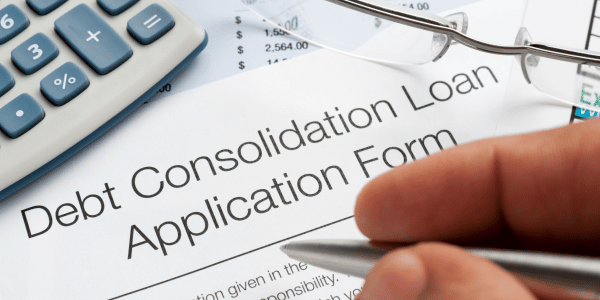As prices continue to rise, saving money is more important than ever. This article will help you understand how inflation affects your finances and offer tips on saving money during this time of economic uncertainty. Everything from car loan refinancing to budgeting habits can help you keep more of your hard-earned cash.
What Is Inflation and How Is It Measured?
Inflation is the rate at which prices for goods and services increase over time and a fall in the purchasing power of money. In other words, inflation eats away at your income and savings, making it harder to afford the things you need and want.
The Consumer Price Index (CPI) is a standard measure or barometer of inflation in the United States. It is a metric that tracks the change in prices over time for select goods and services that represent what urban consumers purchase. That means the CPI can measure how inflation affects the cost of living. Though it isn’t perfect, it remains a popular tool because it is relatively easy to understand and follow.
The Importance of Saving During Periods of Inflation
Saving money is always important, but it becomes even more critical during periods of inflation. That’s because your money doesn’t go as far when prices go up. So, if you’re not careful, you could struggle to make ends meet.
Saving during periods of inflation is also important because it can help insulate you from economic shocks. For example, if there is a sudden spike in inflation or prices start to rise faster than expected, having some extra savings can help weather the storm.
Best Money-Saving Tips for Periods of Inflation
You can do several things to save money during periods of inflation. Here are a few tips:
1. Become budget conscious
A budget is an estimation of income and expenses over a specified period. It’s important because it can help you keep track of your spending, save money and make informed financial decisions. When inflation is high, budgeting can be beneficial.
Budgeting can help you save money during inflation by tracking your spending and adjusting to ensure you are not overspending. Additionally, budgeting can help you to make informed decisions about where to spend your money.
When inflation is high, it is vital to be mindful of where you spend your money to get the most bang for your buck. By budgeting, you can ensure that your money is working hard for you even when times are tough.

If you’re new to budgeting, the money experts at Forbes have put together a list of time-tested approaches to making a budget, including some of our favorites:
- 50-20-30 Budget – A budget that separates your spending into three categories: 50% for essential expenses, 20% for savings and debt and 30% for flexible spending. To make it more savings-friendly, consider upping the percentage that goes toward savings and debt.
- Zero-Based Budget – A budget in which you give every dollar a job. This approach can be helpful if you are struggling to make ends meet or get out of debt. Just be sure to prioritize your essential expenses first and pay down debt.
- Envelope Budgeting – A budget in which you use physical envelopes to store cash for specific expenses. This system can be helpful if you struggle with sticking to a budget.
It could be a good idea to try out each approach to see which one works best for you.
2. Reduce your expenses
Periods of soaring inflation are a perfect time to re-evaluate your needs and wants and a good time to search out areas where you’re needlessly spending money. It could be time to shop around and reduce some ordinary monthly household expenses, such as:
- Cell phone and internet services – Look into bundling these services with the same provider or enrolling in a family plan to save money. You can negotiate your current rates or shop for a new provider.
- Television and streaming services – Take a close look at your viewing habits and consider eliminating channels or services you don’t watch. In addition, if you have multiple streaming services, see if there are any that you can live without.
- Insurance premiums – Compare rates from different providers to ensure you get the best deal on your car, home, health and life insurance. You might be able to save money by increasing your deductible or switching to a less expensive plan.
- Gym membership – If you’re not using your gym membership regularly, consider canceling it. Instead, take advantage of free or low-cost activities like walking, running or working out at home.
There might be other bills you have that you can lower, as well. Make a list of all your monthly expenses, and then you’ll see which ones you might be able to cut out completely or at least try to lower.
3. Pay down interest-heavy debt
If you’re carrying high-interest debt, paying it down should be a priority – even during periods of inflation. The faster you can pay off your debt, the less money you’ll ultimately have to pay in interest. To save money on interest payments:
- Refinance your debt – If you have good credit, you might be able to qualify for a lower interest rate by refinancing your debt. This could help you save money on interest payments and become debt-free more quickly.
For example, look at your auto loan financing and compare rates to see if you could get a lower monthly payment by refinancing. Then, use a refinance car loan calculator to estimate your new monthly payment.
- Consolidate your debt – If you have debt with different interest rates, you might be able to save money by consolidating them into one loan with a lower interest rate. This could help you become debt-free more quickly and save money on interest payments.

- Make extra payments – Whenever possible, make additional payments on your debt. Even an extra $50 or $100 per month can make a big difference over time.
- Pay off high-interest debt first – If you have debt with different interest rates, focus on paying off the debt with the highest interest rate first. Once that debt is paid off, you can put more money toward paying off the remaining debt.
Taking these steps can help you pay off debt faster, which will save you money sooner.
4. Invest in inflation-protected investments
Inflation-protected investments, such as TIPS (Treasury Inflation-Protected Securities) and I Bonds (inflation-indexed savings bonds), are a good way to protect your money from inflation. With these types of investments, your principal investment is adjusted for inflation, so you don’t have to worry about losing purchasing power over time.
Planning, Discipline and Patience
Saving money during periods of inflation requires you to plan, be disciplined and have patience because it can take time for your efforts to pay off. But if you stick to a budget, reduce your expenses and pay down high-interest debt, you can make headway on your financial goals – even during economic uncertainty.
Also, don’t forget those inflation-protected investments. They can help you sleep soundly at night, knowing your money is safe from inflation. And you can always look into refinancing debt like your auto loan to help you save money, as well.

